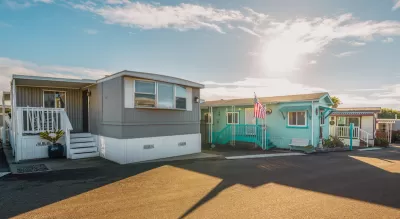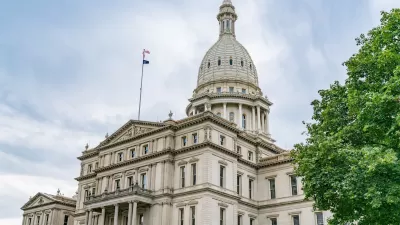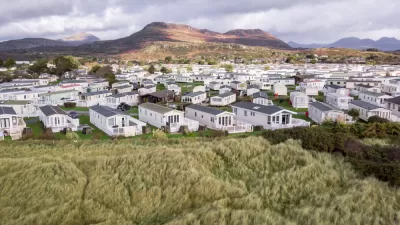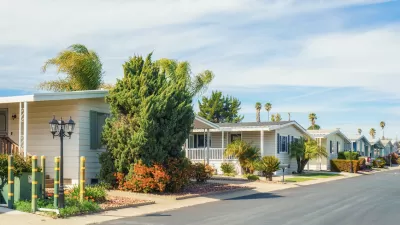In a trend that has accelerated since the pandemic, over one in five mobile home parks in Maine are owned by out-of-state investors.

Over 20 percent of mobile home parks in Maine are owned by out-of-state investors, reports Zara Norman of Bangor Daily News, sparking affordability concerns among residents and housing advocates.
“Long ago, these parks were generally owned by the family owners who built them. Many of those owners are hitting retirement age and selling to corporate investors eager to scoop up some of the last bastions of affordable living,” Norman explains. “Almost always, they immediately increase lot fees on the residents that typically own their homes and steadily raise rent thereafter. New parks are almost never built, keeping rents high.”
While the parks are an attractive investment for owners, these tactics put residents — many of whom are elderly and on a fixed income — at risk of eviction and homelessness. A growing movement to put ownership into the hands of mobile home park residents seeks to combat these risks through cooperatively owned parks, but residents who want to purchase the land they live on often come up against challenges with loan financing. Some states, like New York, have passed legislation to protect residents and allow mortgages and mortgage pool insurance for manufactured homes.
FULL STORY: Out-of-state investors own 1 in 5 of Maine's mobile home parks

Maui's Vacation Rental Debate Turns Ugly
Verbal attacks, misinformation campaigns and fistfights plague a high-stakes debate to convert thousands of vacation rentals into long-term housing.

Planetizen Federal Action Tracker
A weekly monitor of how Trump’s orders and actions are impacting planners and planning in America.

In Urban Planning, AI Prompting Could be the New Design Thinking
Creativity has long been key to great urban design. What if we see AI as our new creative partner?

King County Supportive Housing Program Offers Hope for Unhoused Residents
The county is taking a ‘Housing First’ approach that prioritizes getting people into housing, then offering wraparound supportive services.

Researchers Use AI to Get Clearer Picture of US Housing
Analysts are using artificial intelligence to supercharge their research by allowing them to comb through data faster. Though these AI tools can be error prone, they save time and housing researchers are optimistic about the future.

Making Shared Micromobility More Inclusive
Cities and shared mobility system operators can do more to include people with disabilities in planning and operations, per a new report.
Urban Design for Planners 1: Software Tools
This six-course series explores essential urban design concepts using open source software and equips planners with the tools they need to participate fully in the urban design process.
Planning for Universal Design
Learn the tools for implementing Universal Design in planning regulations.
planning NEXT
Appalachian Highlands Housing Partners
Mpact (founded as Rail~Volution)
City of Camden Redevelopment Agency
City of Astoria
City of Portland
City of Laramie





























